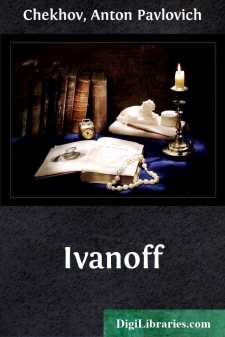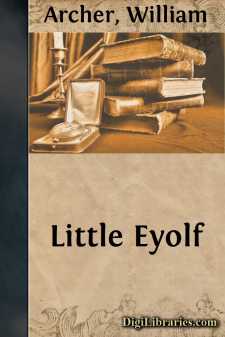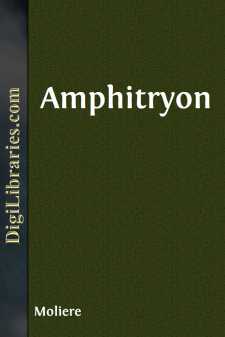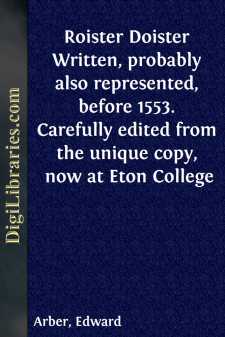Drama Books
Sort by:
INTRODUCTION ANTON TCHEKOFF THE last years of the nineteenth century were for Russia tinged with doubt and gloom. The high-tide of vitality that had risen during the Turkish war ebbed in the early eighties, leaving behind it a dead level of apathy which lasted until life was again quickened by the high interests of the Revolution. During these grey years the lonely country and stagnant provincial towns...
more...
by:
Aeschylus
INTRODUCTION. Æschylus, the first of the great Grecian writers of tragedy, was born at Eleusis, in 525 B.C. He was the son of Euphorion, who was probably a wealthy owner of rich vineyards. The poet's early employment was to watch the grapes and protect them from the ravages of men and other animals, and it is said that this occupation led to the development of his dramatic genius. It is more easy...
more...
by:
Moliere
SCENE I.——LE BARBOUILLÉ. Bar. Everybody must acknowledge that I am the most unfortunate of men! I have a wife who plagues me to death; and who, instead of bringing me comfort and doing things as I like them to be done, makes me swear at her twenty times a day. Instead of keeping at home, she likes gadding about, eating good dinners, and passing her time with people of I don't know what...
more...
PREFACE. The main rules which we proposed to ourselves in undertaking this Edition are as follows: 1. To base the text on a thorough collation of the four Folios and of all the Quarto editions of the separate plays, and of subsequent editions and commentaries. 2. To give all the results of this collation in notes at the foot of the page, and to add to these conjectural emendations collected and...
more...
by:
Bernard Shaw
You once asked me why I did not write a Don Juan play. The levity with which you assumed this frightful responsibility has probably by this time enabled you to forget it; but the day of reckoning has arrived: here is your play! I say your play, because qui facit per alium facit per se. Its profits, like its labor, belong to me: its morals, its manners, its philosophy, its influence on the young, are...
more...
ACT I The garden of IVANOFF'S country place. On the left is a terrace and the facade of the house. One window is open. Below the terrace is a broad semicircular lawn, from which paths lead to right and left into a garden. On the right are several garden benches and tables. A lamp is burning on one of the tables. It is evening. As the curtain rises sounds of the piano and violoncello are heard....
more...
by:
William Archer
INTRODUCTION. Little Eyolf was written in Christiania during 1894, and published in Copenhagen on December 11 in that year. By this time Ibsen's correspondence has become so scanty as to afford us no clue to what may be called the biographical antecedents of the play. Even of anecdotic history very little attaches to it. For only one of the characters has a definite model been suggested. Ibsen...
more...
by:
Moliere
PROLOGUE MERCURY, on a cloud; NIGHT, in a chariot drawn by two horses MERC. Wait! Gentle Night; deign to stay awhile: Some help is needed from you. I have two words to say to you from Jupiter. NIGHT. Ah! Ah! It is you, Seigneur Mercury! Who would have thought of you here, in that position? MERC. Well, feeling tired, and not being able to fulfil the different duties Jupiter ordered me, I quietly sat...
more...
by:
Ben Jonson
INTRODUCTION THE greatest of English dramatists except Shakespeare, the first literary dictator and poet-laureate, a writer of verse, prose, satire, and criticism who most potently of all the men of his time affected the subsequent course of English letters: such was Ben Jonson, and as such his strong personality assumes an interest to us almost unparalleled, at least in his age. Ben Jonson came of the...
more...
by:
Edward Arber
INTRODUCTION. HE author and early date of the present Comedy are ascertained by a quotation in Sir Thomas Wilson’s Rule of Reason of Roister Doister’s letter to Dame Custance. The first edition of the Rule of Reason, 1550-1, is a very scarce work; of which I have been unable to see a copy. The second edition, 1552, 8vo, ‘newely corrected by Thomas Wilson,’ has not the quotation: which...
more...



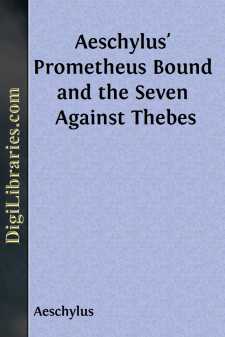
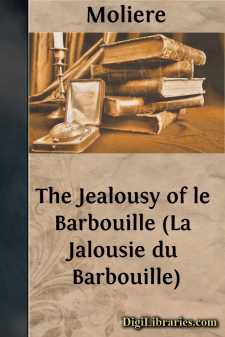
![The Works of William Shakespeare [Cambridge Edition] [9 vols.]...](https://digilibraries-com.s3.eu-central-1.amazonaws.com/covers/a2e5c638-77fb-4dc6-8fd2-e159b114f0df.jpg)

